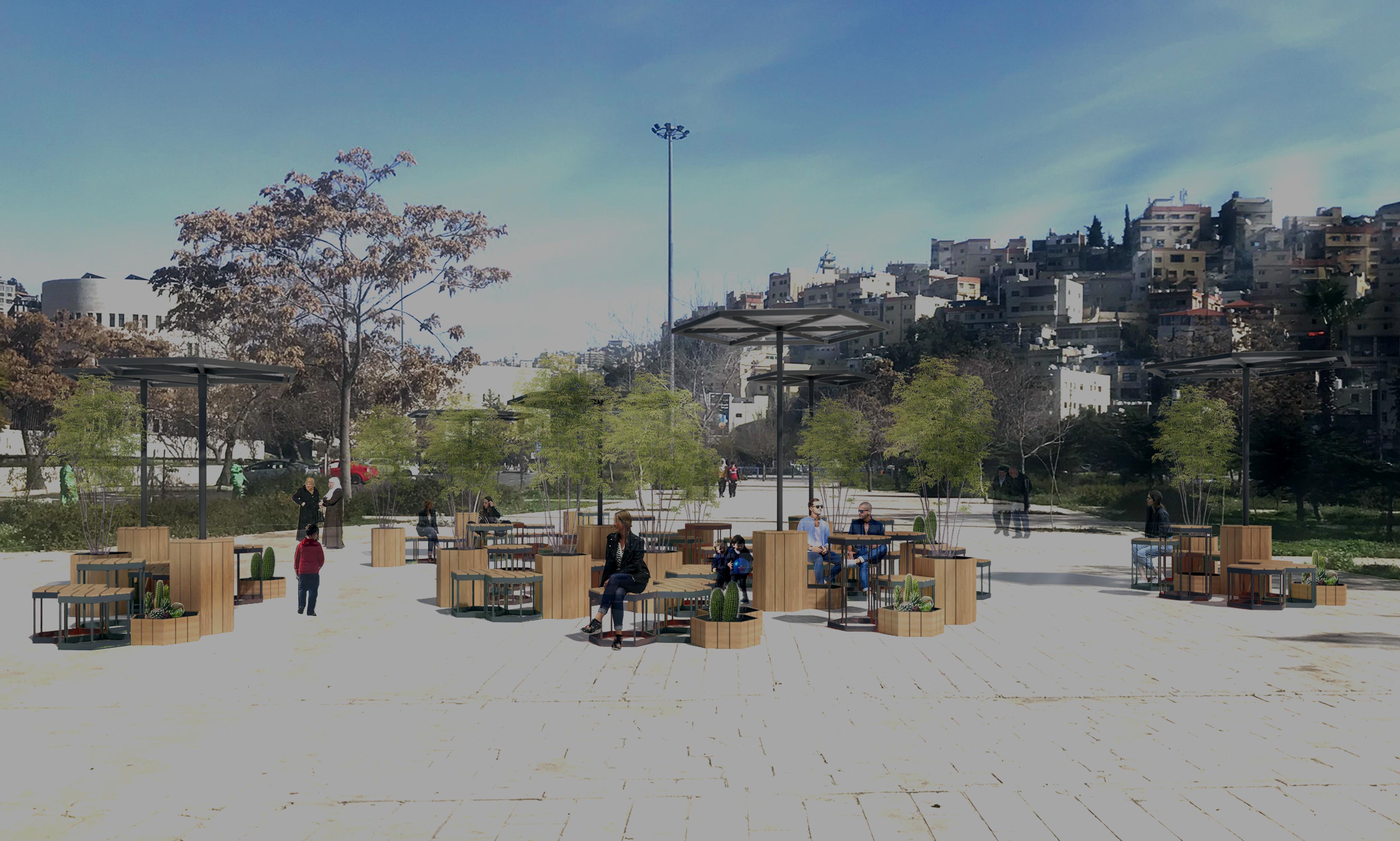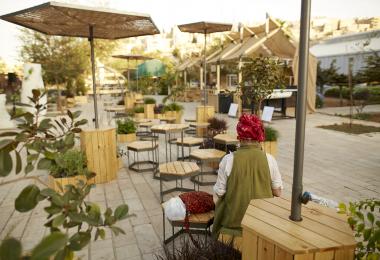Future Food/Future City
Lying at the intersection of science, technology, invention, and design; Amman Design Week 2019 brings designers together with farmers to present new ways of looking at the future of food.
Amman has become a city known for its lack of public green spaces and designers are tackling the urban environment whilst also looking for solutions in which the city can become a hub for agriculture and home-grown food. While large green areas in cities are becoming rarer, smaller public gardens are also disappearing due to the rampant construction of large real estate projects.
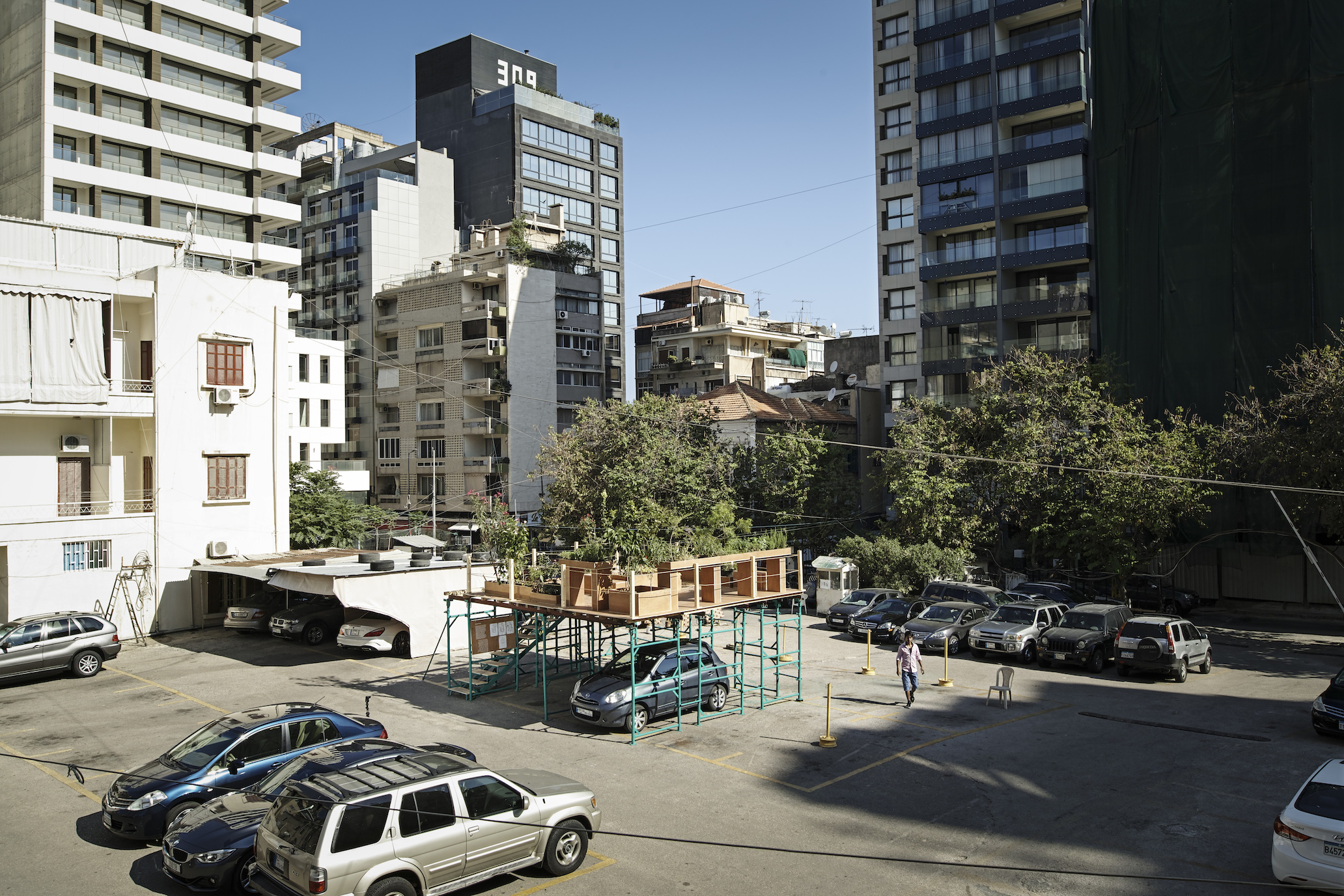
First exhibited at Beirut Design Week 2018, Natalie Harb’s ‘Urban Hives’ is brought to Amman, in one of the city’s most vast parking lots; that of the Greater Amman Municipality. It proposes to reintroduce the garden in parking lots (and potentially other public hard-surfaced spaces), transforming them into spaces for gathering and for greens. The proposed car-sized lightweight, modular, scaffolded structure, is erected at car height, providing a shaded area beneath and a garden above. Each module is low-cost and can be multiplied to create a site specific communal garden.
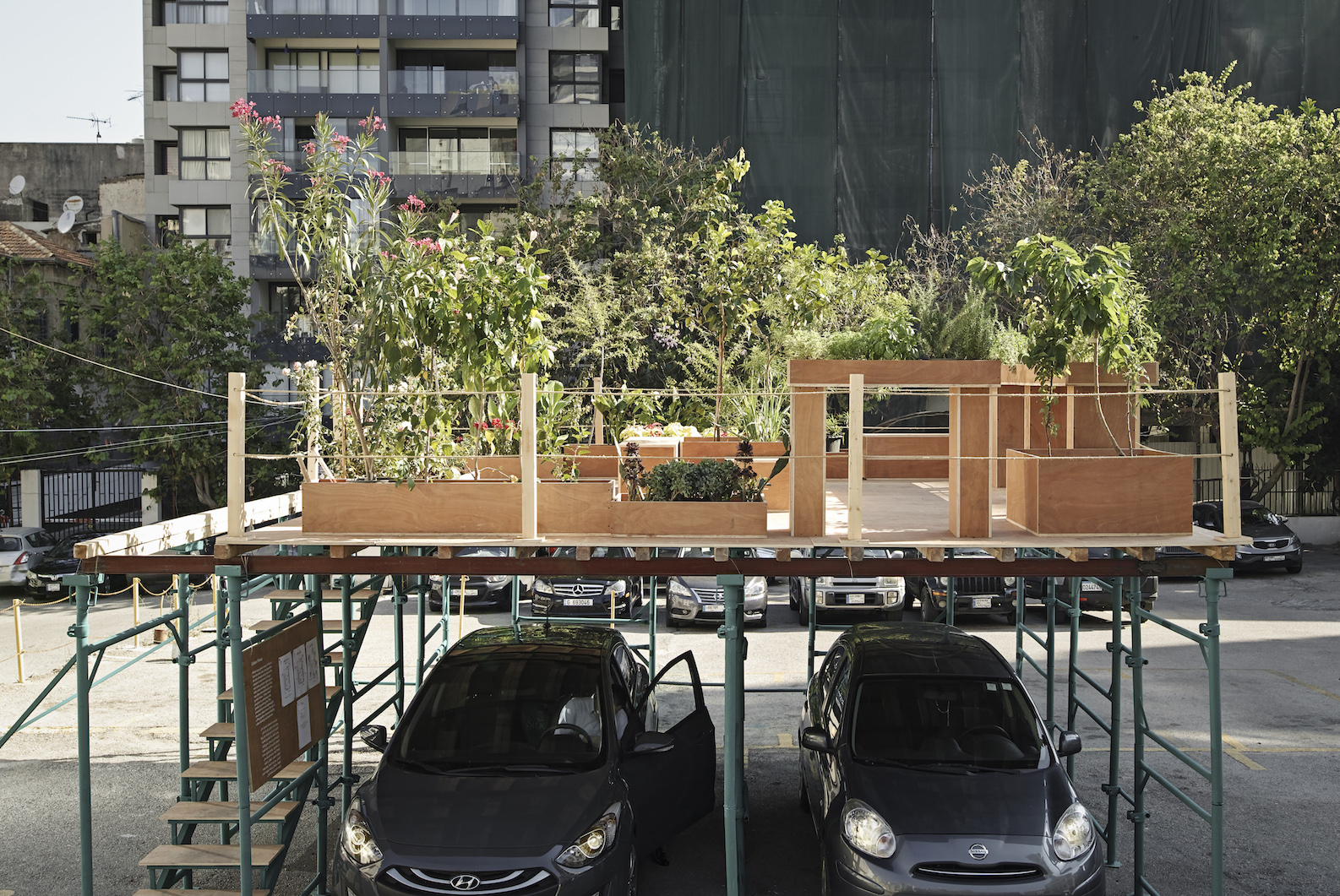
The structure is simultaneously growing food for the neighborhood and provides an important pollination spot for urban bees. Bees play a crucial role in the maintenance of our ecosystem but are at increased risk of extinction.
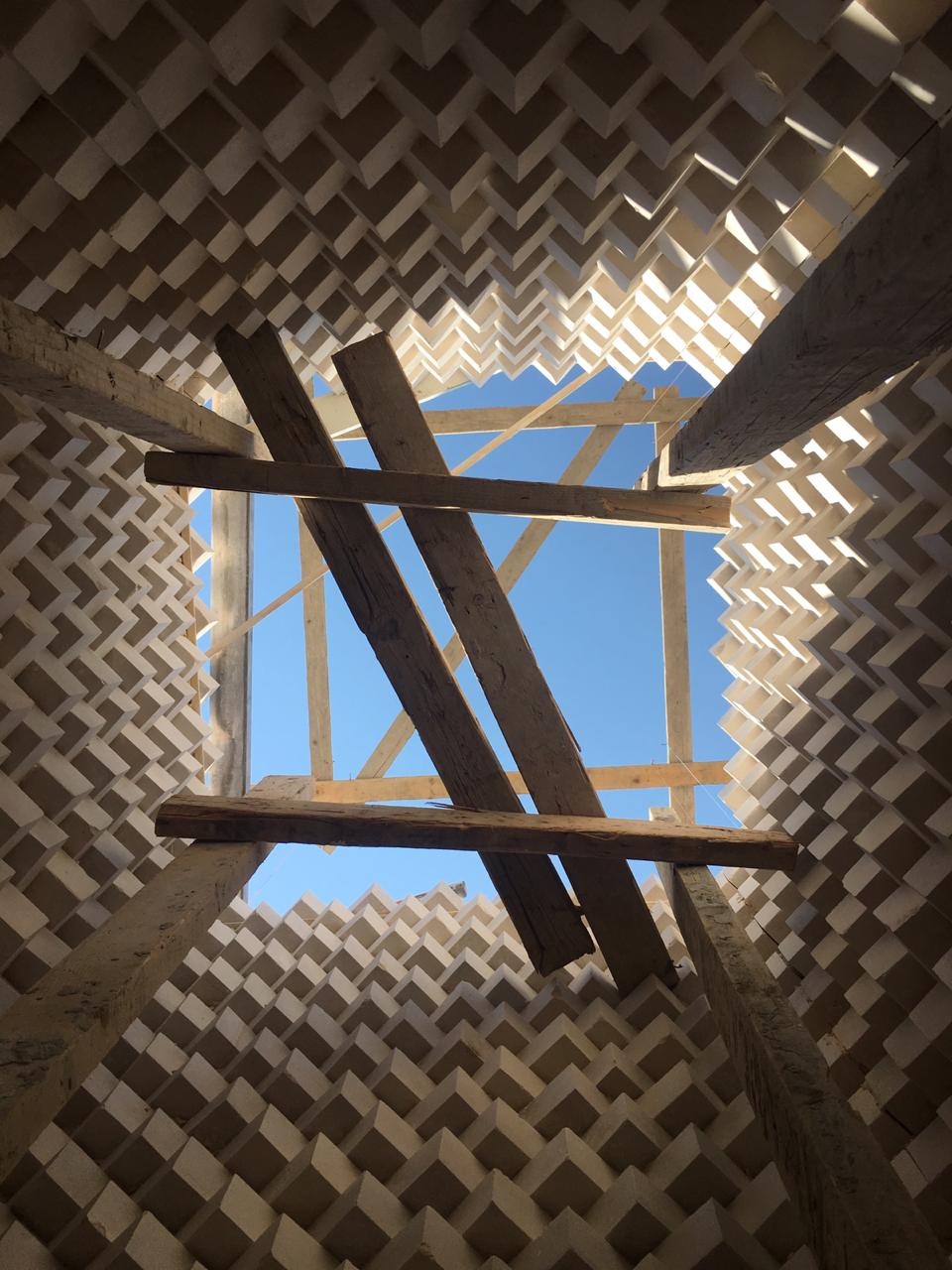
Also with urban space in mind, TAYYŪN Research Studio, run by Deema Assaf, Shatha Al-Haj, Amir Shinnawi, and Yasmin Al-Jafari, have proposed an intervention considered to be ‘urban acupuncture’ that addresses the issue of urban biodiversity and food production within cities. Their ‘Urban Pigeon Tower’ proposes to “rewild the city” as a rich multi-species ecosystem and is reminiscent of a cultural phenomenon that is slowly disappearing in Amman, while also presenting a valuable resource for soil building and crop production.
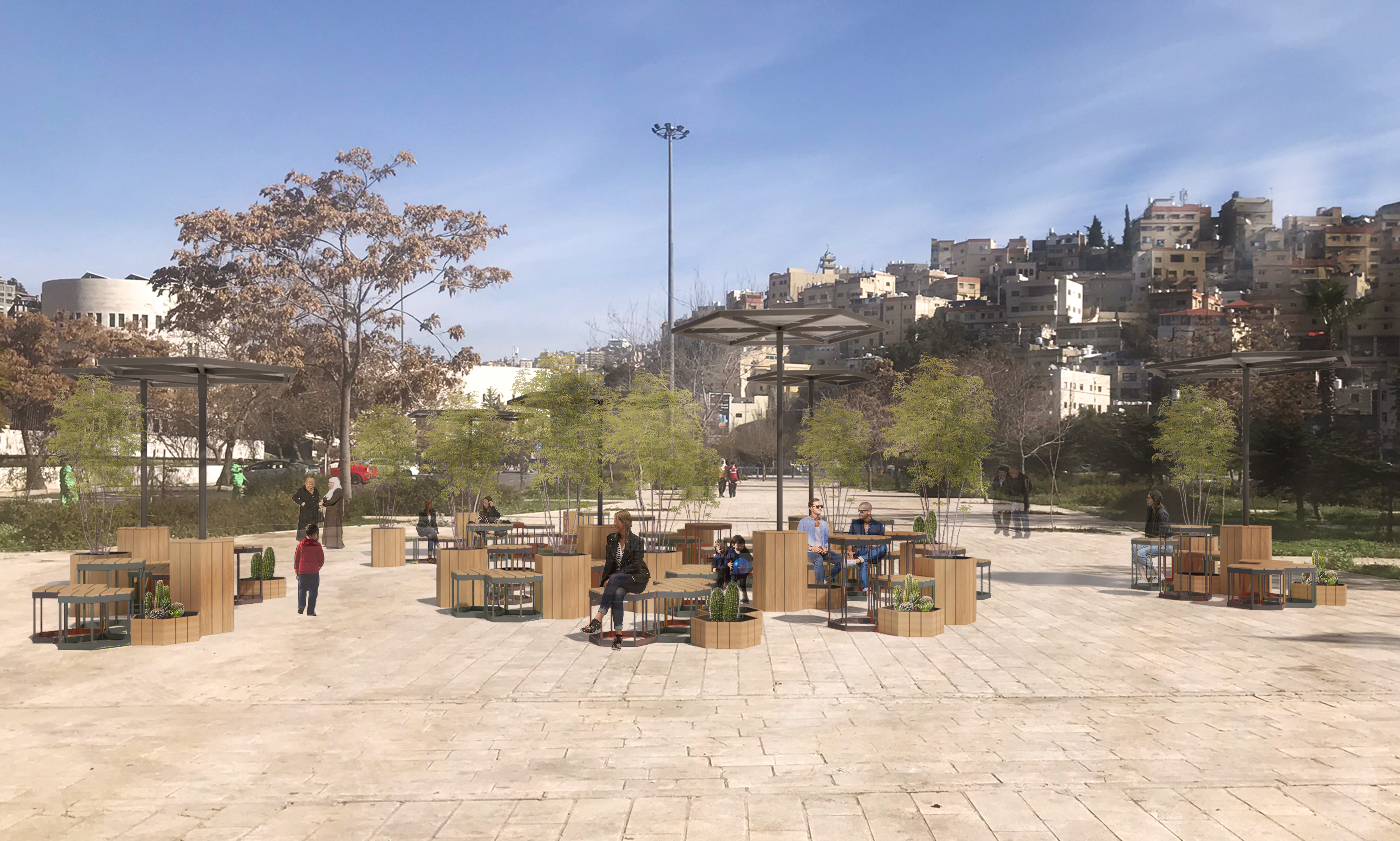
Other designers, such as Ban and Zaid Edilbi and Fab Lab Irbid, propose new possibilities for urban seating and gathering, bringing people closer to nature, and empowering them with a toolkit to create their own urban setting that allows for the integration of plants. The projects are speculative in nature and help question what a successful urban space could look like. Similarly, Seba Basel Al Diri proposes her design for a Growroom (inspired by the IKEA open-source grow globe, and reinvented and repurposed to her context in the Zaatari camp in Jordan).
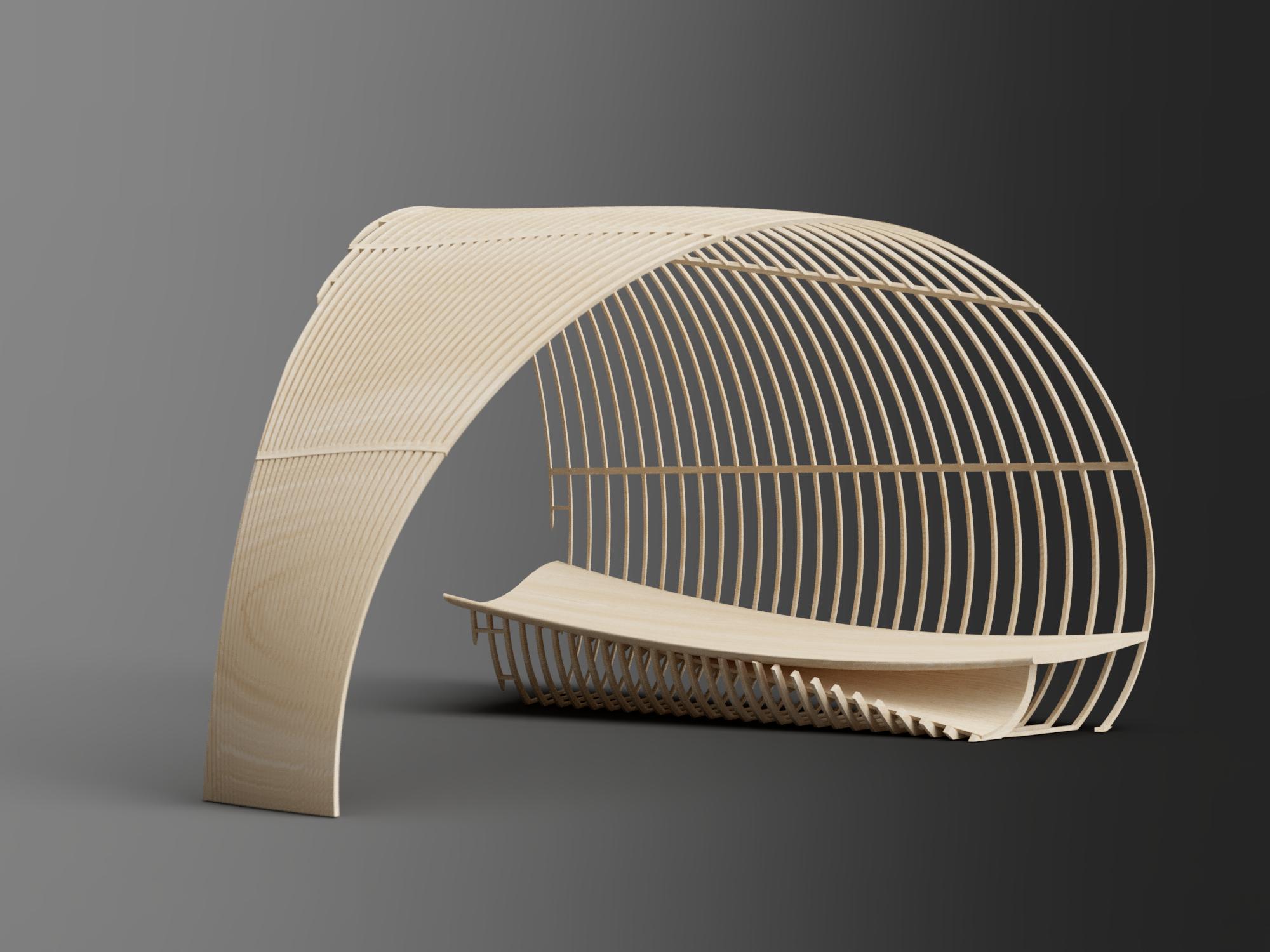
Future Food/Future City
Lying at the intersection of science, technology, invention, and design; Amman Design Week 2019 brings designers together with farmers to present new ways of looking at the future of food.


